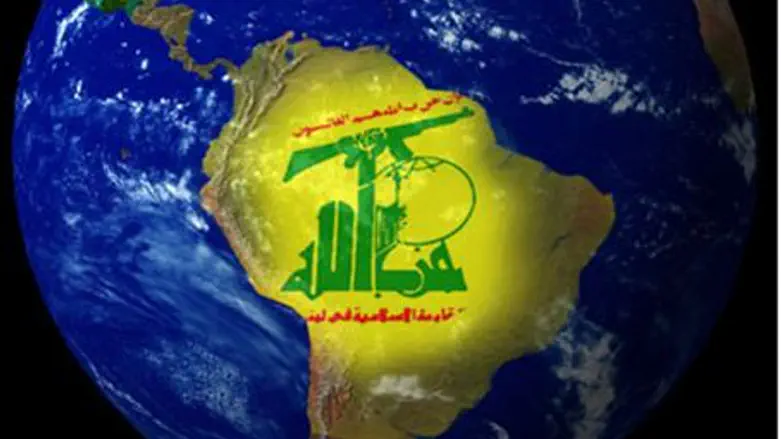
Iran and its proxy Hizbullah continue to expand their influence and presence in South America, a top US general warns.
USAF General Douglas Fraser, commanding officer of the Pentagon's Southern Command, says Iran has aggressively expanded its network of embassies in the region, as well as building numerous cultural centers and mosques in more than 15 Latin American countries.
Fraser, the shot-caller for US military operations in 31 countries in Latin America and the Caribbean, says intelligence provided to SoCom indicates the Iranian-built Mosques and cultural centers are teaching a radical brand of Islam to impoverished Latin American's and serve as recruiting centers for 'extremist organizations.'
Fraser warns these efforts have been accelerated by the close relationship between President Hugo Chavez of Venezuela and Iran’s President Mahmoud Ahmadinejad, who have met at least nine times during Chavez’s 12-year tenure as President.
The Iranian-Venezuelan alliance remains largely diplomatic and commercial, according to Fraser. But he maintains there are still too many unknowns to simply discount its long-term strategic importance vis-a-vis the growth of Islamic terror groups in the region.
"There are flights between Iran and Venezuela on a weekly basis, and visas are not required for entrance into Venezuela or Bolivia or Nicaragua. So we don’t have a lot of visibility in who’s visiting and who isn’t, and that’s really where I see the concerns," Fraser says.
"It is a concern, and it is an issue we will continue to monitor for any increasing activity," Fraser said.
Fraser also told the Senate Armed Services Committee that military intelligence confirmed Iran has hosted heads of state from three countries: Bolivia, Guyana and Venezuela.
But Fraser isn't just concerned about Iran forming a beach-head in the region. The Iranian-supported Hizbullah terror-organization is also developing a dangerous presence in Latin America, Fraser says. In addition to fundraising and recruiting in the region, the terror group has reportedly started muscling in on the Mexican drug trade.
Fraser is not the first to warn lawmakers from both parties about Latin America's vulnerability to radical Islam. In 2007, Marine Corps General Peter Pace, the Bush Administration’s chairman of the Joint Chiefs of Staff, told the Armed Services Committee elements of radical Islamic groups were active in South America recruiting and training terrorists.
Pace specifically cited Hizbullah and al-Qaeda, but the Senate chose not to act on Pace's warnings at the time.
Due to Fraser's lobbying, the Senate Committee on Homeland Security’s Subcommittee on Counterterrorism and Intelligence will hold a hearing entitled “Hizbullah in Latin America – Implications for U.S. Homeland Security" on July 7th.